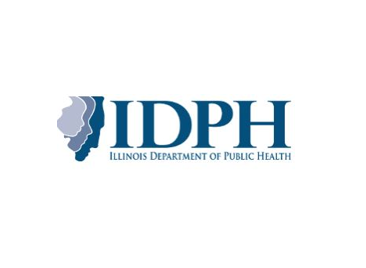Current risk to Illinoisans remains low, but state taking all steps to prepare
SPRINGFIELD – The Illinois Department of Public Health (IDPH) is working with local, state, and federal health partners to take all preventative steps available to limit the spread of coronavirus disease 2019 (COVID-19). While COVID-19 is not spreading in communities in Illinois or the U.S., there is evidence of community spread in several countries around the world and IDPH is committed to working across local, state, and federal agencies to ensure Illinois is prepared.
IDPH is currently conducting hospital assessments to determine all available capacity in the event more people need medical care. IDPH is also assessing the availability of personal protective equipment such as gloves, gowns, and masks for health care workers. Earlier this month, Illinois became the first state to provide COVID-19 testing in-state and IDPH is continuing to work on increasing capacity for testing to ensure rapid results.
“As additional cases of COVID-19 are diagnosed in an increasing number of countries, the Illinois Department of Public Health is working with health care providers and local public health officials, the Centers for Disease Control and Prevention, and other state agencies to coordinate a robust response and take every possible step we can to prepare,” said IDPH Director Dr. Ngozi Ezike. “Illinois has already led the charge, becoming the first state to be able to test for COVID-19 at state laboratories. As we move forward, we are working across city, state, and federal agencies to identify all available resources and ensure we are using every tool to keep our communities safe.”
Since January 2020, IDPH has worked closely with local, state, and federal partners to successfully contain the virus in Illinois, with only two confirmed cases. Efforts have included:
– Implementing testing for COVID-19 in Illinois, becoming the first state to do so.
– Setting up a statewide hotline for questions about coronavirus
– Providing guidance and recommendations to local health departments, hospitals, EMS, clinicians, and other partners in a variety of areas:
o Assessment for COVID-19 in patients based on risk due to travel or close contact to a confirmed case
o Evaluation and reporting persons under investigation
o Infection control practices
o Precautions for schools, universities/colleges, and students
o Isolation/quarantine
o Prevention steps for caregivers and close contacts
o Specimen submission and testing
o Recommended strategies for personal protective equipment use
o Emergency department call triage
o Emergency Medical Services and 911 call center response
– Providing routine briefings to the General Assembly
– Communicating with the public by creating a coronavirus disease webpage, issuing news releases, hosting press conferences, conducting interviews, and providing information on social media.
While efforts to contain the number of COVID-19 cases will continue, Illinois will also utilize community mitigation strategies. Community mitigation aims to slow the spread of a novel virus in communities using nonpharmaceutical interventions (NPIs) better known as “everyday preventive actions” including staying home when sick, covering coughs and sneezes, frequent handwashing, and routine cleaning of frequently touched surfaces and objects.
In the absence of medications or vaccines, community mitigation measures are the first line of defense against highly transmissible infectious diseases. Preventative actions should be practiced by Illinoisans at all times, but especially as we continue to monitor potential spread of a new virus.
For more information about how you can prepare for the spread of the virus and steps you can take to stay healthy, visit https://www.cdc.gov/nonpharmaceutical-interventions/. While these materials reference influenza, the information and actions you can take to prepare yourself and your community still apply, for At Home, At School, At Work, and At a Gathering.

